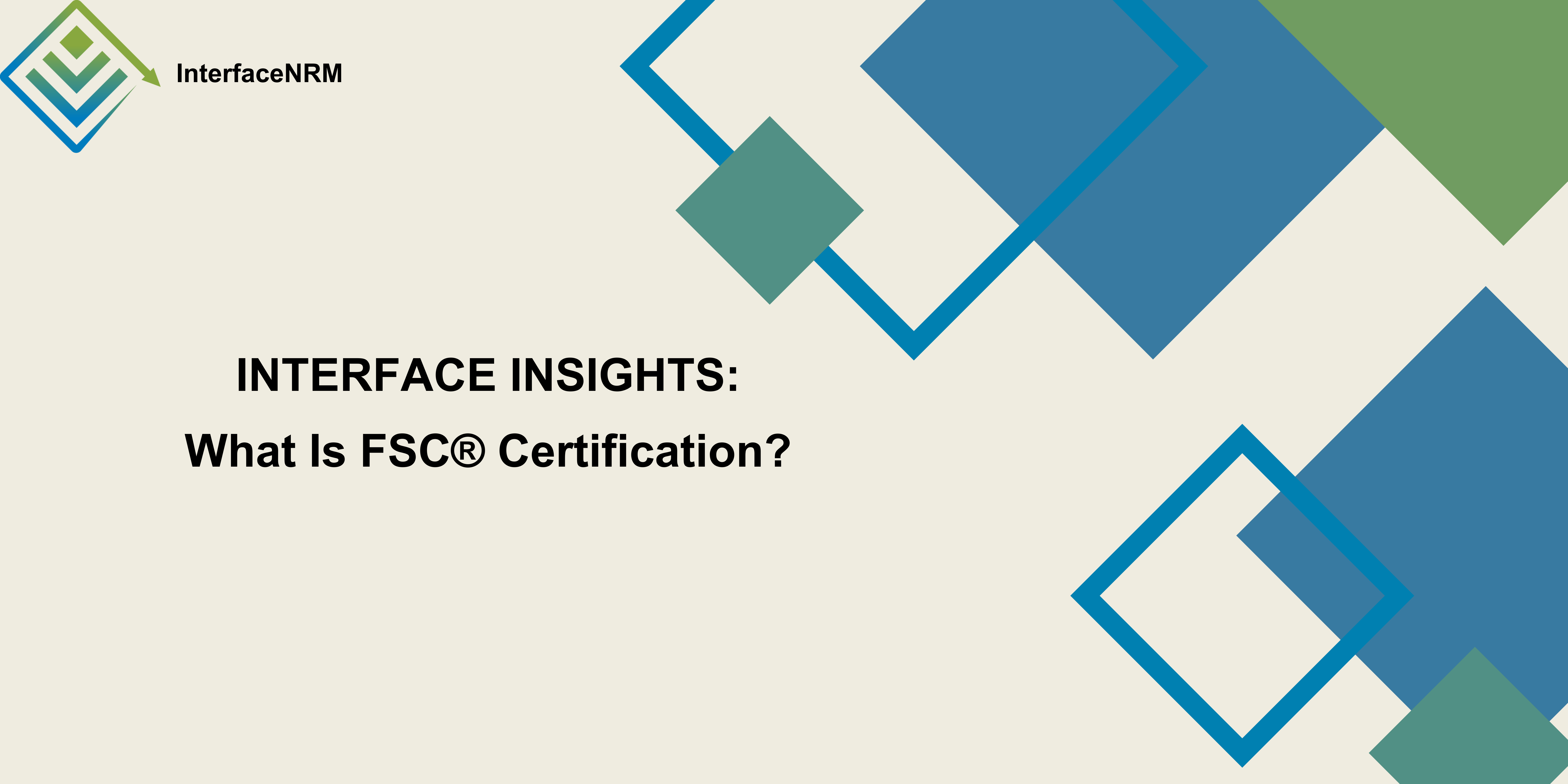Case Study: Interface Insights: What Is FSC® Certification?
Introduction:
The Forest Stewardship Council® (FSC®) certification has become increasingly popular in recent years as a pivotal marker of responsible forestry practices. FSC® is an international, non-governmental organisation dedicated to promoting responsible management of the world’s forests, ensuring forest products come from responsibly managed forests that provide environmental, social, and economic benefits
Key Benefits:
Environmental Benefits – FSC® Certification plays a critical role in the conservation of ecological processes. Following strict guidelines, certified forests maintain high conservation values and protect endangered species.
Social Benefits – FSC® certification ensures that the rights and welfare of workers and local communities are respected. It represents fair labour practices and empowers indigenous communities by recognising their land rights.
Economic Benefits – For businesses, FSC® certification opens doors to new market opportunities. Customers increasingly prefer FSC®-certified products, as they recognise their contribution to sustainable development.
Criteria for FSC® Certification
To achieve FSC® certification, organisations must comply with the ten core principles associated with FSC®. These principles cover a wide range of forestry practices, such as:
Compliance With Laws – Forestry operations must ensure that all applicable laws and international treaties are being respected.
Workers’ Rights and Employment Conditions – Ensuring that all workers receive a fair wage, and that health and safety regulations are met.
Indigenous Peoples’ Rights – Recognising and respecting the rights of indigenous people.
Community Relations – Maintaining a positive relationship with local communities and ensuring that they receive social and economic benefits.
Forestry Benefits – Efficient and effective use of the forest’s multiple products and services to ensure long-term economic viability.
Environmental Values And Impacts – Protecting, preserving, and growing biodiversity, water resources, soils, and unique ecosystems.
Management Planning – A comprehensive and adaptive management plan that involves detailed objectives, actions, and monitoring.
Monitoring And Assessment – Regular evaluation of the forest’s condition, management activities, and their social and environmental impacts.
High Conservation Value Forests – Identifying, managing, and monitoring forests that are critical to conservation.
Plantations – Ensuring that plantations complement the management of natural forests.
Conclusion
FSC® Certification stands out as a beacon of responsible forestry, balancing environmental needs and economic viability. For businesses, it offers a doorway to sustainable practices and an enhanced reputation, which can lead to an increase in sales as the global demand for sustainable products rises. FSC® certification remains a great tool for fostering responsible forestry management.
Start your FSC® certification journey with us at Interface NRM. We are a UKAS accredited certification body with a 5-star rating on Trustpilot, with reviews highlighting our excellent customer service. Certification can be a daunting process, but we are here to help you every step of the way and ensure that everything is done as professionally and easily as possible. If you want to find out more, or get started on your journey with FSC® certification, you can contact us today for a free quote. Use the phone number 01952 288325 or our email address: [email protected]
Recent Posts
Interface Insights: Simplifying ISO 14064: key concepts and applications
In today's world, environmental accountability is crucial. ISO 14064 has become essential for businesses aiming to manage and report greenhouse gas (GHG) emissions effectively. This case study simplifies ISO 14064 by exploring its key [...]
Interface Insights: Innovative approaches to ISO 45001
Innovative Approaches to ISO 45001 Implementing ISO 45001 is a strategic move for businesses aiming to enhance workplace safety. This standard is pivotal for improving occupational health and safety (OHS) by reducing workplace risks [...]
Interface Insights: Best practices for a quality management system
In today’s competitive business landscape, maintaining high-quality standards is paramount for success; however, it can be challenging. ISO 9001, a recognised standard for Quality Management Systems (QMS), provides a robust framework for businesses [...]

